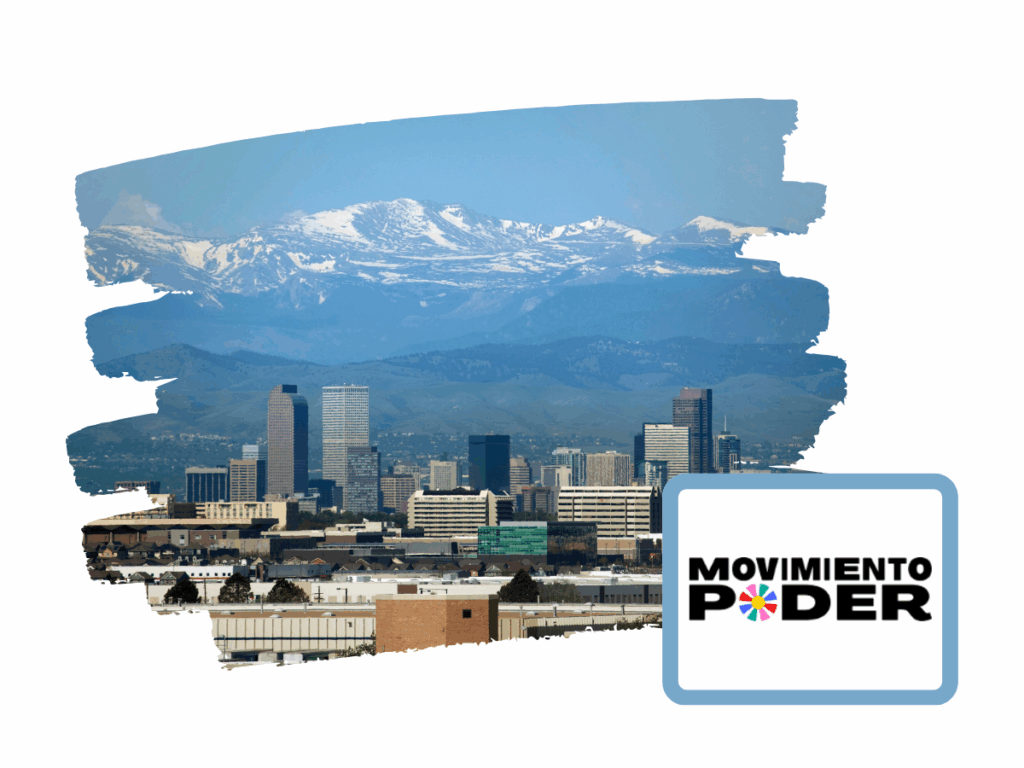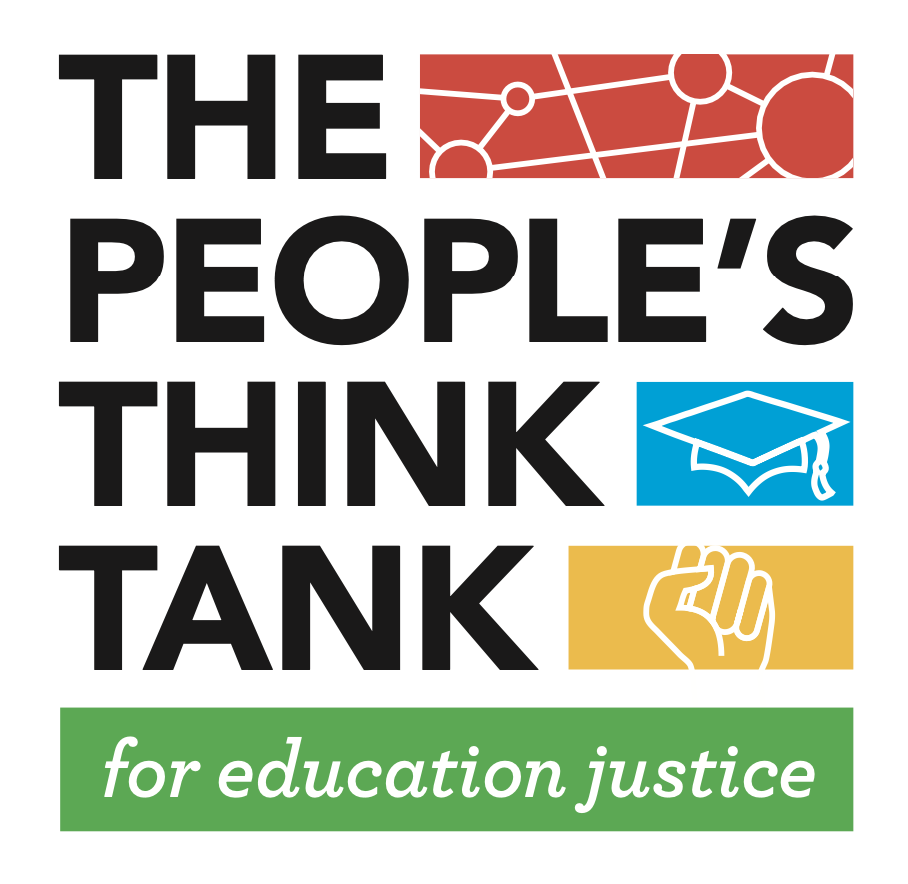
Lidia Lopez, Movimiento Poder (May 2025)
With the assistance of Norhan Alshihabi, University of Massachusetts Boston
Lidia Lopez is a Mexican-Native American student leader and activist with Movimento Poder in Denver, Colorado. Lidia talks about how her mother inspired her to fight for what is right and never be silent over injustices. Her mother would tell her stories about discrimination and racism faced by her community and others, and this made her want to speak up. She believes that all people should be treated equally and justly. She has witnessed disrespectful and ignorant comments during her time at school, which has further fueled her desire to organize and inspire others to do so. She believes Movimento Poder has provided her with a platform to speak and be confident about the truth. Lidia reflects on the importance of storytelling in organizing, her experiences at school, how that pushed her to speak up, and what she hopes to pursue further with her organizing background.
My Journey into Organizing
My journey into organizing wouldn’t have been possible without my mom. She’s always been aware of the social issues in our community, and she’s one of the strongest, smartest women I know. She made it a point to talk to me about things that most adults avoid—racism, discrimination, and injustice—especially things affecting women and people like us.
A lot of people think kids shouldn’t be taught about problems because they’re “too young” or because it’s too scary. But I’ve always wondered—has hiding the truth ever actually helped? I see adults all around me who never learned how to deal with real-world problems because no one ever taught them. They were left unprepared, and life hit them hard. I’ve learned that being young doesn’t mean I can’t understand the world or help change it. In fact, I believe age should never stop us from fighting for what’s right.
Organizing, to me, is more than protests or big plans. It can be as simple as talking about issues that matter and helping others understand them. I didn’t even realize that what I was doing—talking to friends, cousins, and even strangers about these things—was a form of organizing. That’s what my mom taught me: to speak up, to educate, and to care.
I officially got involved with an organization called Movimiento Poder when they were working on school closures. My mom was already helping support my elementary school, and she connected with people from Movimiento Poder during that time. They talked about the work they were doing, and my mom got involved—and so did I. I told her I wanted to go to meetings and events too. I didn’t hesitate. I knew it was something I was meant to do. That decision led me to the Alliance for Educational Justice (AEJ)—and now, here I am, ready to keep growing, keep learning, and keep organizing.
What Issues I Fight For
I believe all social problems deserve to be addressed, but the ones I speak about the most are the ones that hit closest to home. Abuse—whether it’s sexual, mental, emotional, or physical—is something I will always speak out against. There is no excuse for abuse, and yet it still happens everywhere. It needs to stop. Bullying is another issue I care about deeply. Why do people bully others? It’s unacceptable. No one deserves to be treated that way for being different, quiet, or simply themselves. Discrimination against the LGBTQ+ community is also something I will always fight. I don’t understand why people are so bothered by others just trying to be happy and live freely. Just because someone else’s identity or happiness doesn’t fit someone’s comfort zone doesn’t mean they have the right to try and stop it. Everyone deserves to be who they are without fear. Racism is another issue that hurts to see still happening. Why do people hate others for something they can’t control? Identity isn’t up for debate—it’s not something others should get to critique or attack.
Gentrification is something I see happening right here in Denver. As someone born and raised here, it’s heartbreaking to watch families get pushed out of their communities, their homes, and their cultures. It’s like being erased in real time. The legal system is broken. It’s supposed to serve justice and protect people, but too often, it fails. It’s biased, disappointing, and doesn’t solve the problems it’s meant to. It just causes more harm. And most of all, I fight for women. I don’t understand why femininity is treated like it’s weak, shameful, or something that has to look a certain way. Being a woman doesn’t have one definition. It’s powerful. And it should be respected, not judged or looked down on.
Challenges in Organizing
It’s always there, but having to actually confront other people’s ignorance and hate can be a hassle. I expect nothing less, but this shouldn’t even have to be the case. The things people say are insane—I couldn’t even imagine such words coming out of my mouth.
When I talk about being asexual, people have told me so many times that it’s not a real thing, that I need therapy, or that it’s all in my head. It’s crazy how people think they have the right to comment on someone else’s identity. And when I talk about feminism, there’s always someone who jumps in to say women are already equal, or that women just want to overpower men—but no, we’re not equal, or I wouldn’t still have to talk about these issues. That ties into another thing: a lot of mainstream social media is red-pilled and anti-inclusive. Somehow, just asking to be seen or treated equally is “too sensitive.” But maybe people aren’t more sensitive—maybe we’re just finally done tolerating hate.
Highlights in Organizing
One of my favorite things about organizing is watching people learn. People say education is everything—and it’s true. What really moves me is seeing someone change their perspective after learning about the reality of social issues. Equality and fairness are very important to me. I love seeing people get the justice they deserve. I also won’t lie—I find satisfaction when the people who spread hate face the backlash they created. Hate is something that’s taught, but I believe compassion is a feeling that can be brought out in people when they’re willing to listen. Since I officially started organizing, I’ve always held my organization and the people I organize for close to my heart. We focus on youth because we are the future. We should not continue allowing decisions that affect our communities to be made without us.
The people making decisions for us have rarely lived the lives we’ve lived or understood the impact those decisions have. They don’t see the consequences. They don’t see how it tears communities apart. They continue targeting youth—but we are the ones who need to rise up, go into those offices, and finally say: No more. No more decisions that harm us. It’s time to lead for real change. As a Denver native, I know that this work means even more. Our city is being torn apart by gentrification. Long-time Denver natives are being pushed out. Sacred spaces are being erased. Our culture is disappearing, and no one’s helping. No one’s listening. They only care about the money they can make off our communities. Traditional redlining areas that were never a priority before are now “valuable”—but only because they want to profit off our disadvantage.
Where are we supposed to go? The rest of Colorado is too expensive. So when I organize I know I am doing something for my community.
Where I see myself in the future
As for the future, I want to become someone who makes our community’s decisions. I’ve seen many actions that didn’t end happily because we didn’t have anyone in high positions to listen to us. So I want to be someone who can bring justice to my community. If I achieve that, I would like to try and support other places where AEJ is organizing so their communities receive their overdue justice too.
